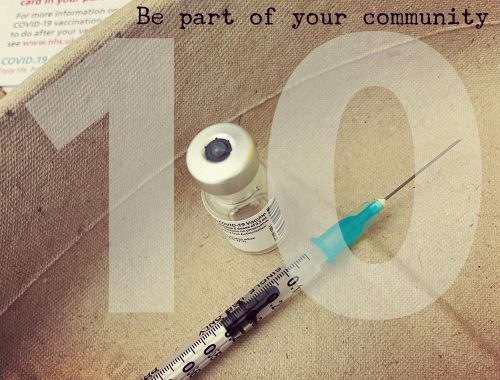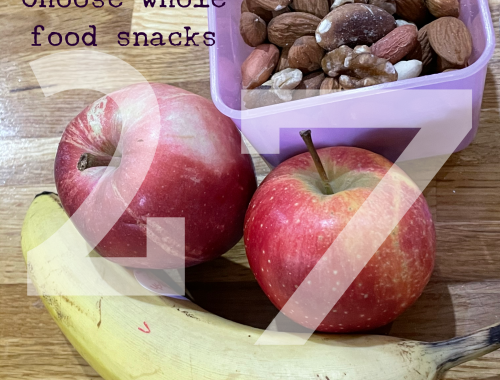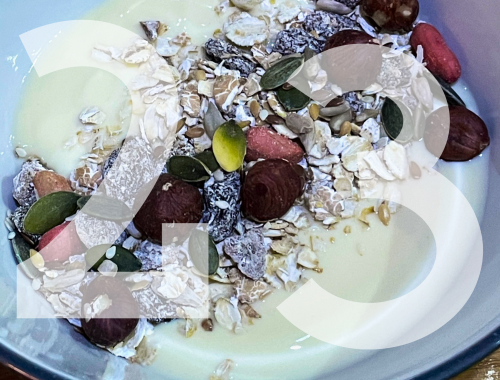
Social media stress
I decided to take a little social media break over half term. Firstly, so that I could properly “turn off” from work and do literally nothing work related whilst I was away with my family. Secondly, because less screen time is something which comes up a lot in lifestyle medicine – for improving sleep by reducing blue light exposure, particularly in the evenings, and for reducing stress from constant information overload.
At the end of half term, when I got home and started back at work, one of the things on my ‘to-do’ list was writing some posts for social media to share some thoughts about wellbeing. But as I logged on and started scrolling, I noticed that I felt bad – I started feeling anxious, a faint tightness in my chest, a general heaviness in my body and a worried feeling. I genuinely enjoyed social media previously, I like being creative, playing with colours and fonts and composition and writing. I like connecting with people, particularly some of the fab like-minded lifestyle medicine enthusiasts I have had the privilege of connecting with online, whom I would never get to meet in real life, other than for a short conversation over a coffee break at a conference. I also love keeping in contact with former patients or clients and hearing how they are applying changes in their own lives.
Social media information overload
Now, scrolling through my feed, I see so many really great posts with insightful and informative content. I have realised that I compare myself (any my posts) with what’s already out there, which leads to thoughts of “I can’t do anything as good as that” which rapidly morph into “I’m not good enough”.
These thoughts provoke anxiety so much that I can’t put pen to paper (or fingers to keyboard) and start writing – the result is that not only am I not good enough, but actually I don’t do anything at all – failing before I’ve even started. Then the fact I haven’t done anything heightens my anxiety and adds pressure that I have to do something, but this additional stress results in even less getting done as I avoid it and do anything else instead.
Since I’ve started putting pressure on myself to produce something “good”, to say interesting things, and write intelligent, insightful comments, there is less fun. In fact, it has tipped over into being no fun and actively stressful.
Anxious brains know they are anxious, but that doesn’t make it easier
As with many types of anxiety, my logical brain knows that this is somewhat ridiculous. I know that when I see patients one-on-one, I am very careful to give sound, evidence-based recommendations. I am confident that I give good advice, provide value and make a difference. For some reason, my anxious brain tells me that none of this matters when trying to share the same information in a different way. It jumps to unfavourable comparisons and self-criticism.
This anxious pattern doesn’t just apply to people like me who are trying to build an online business, similar social media stress affects people who are posting just because. People are social beings, it is natural to want to fit in and seek approval from the rest of the ‘tribe’; therefore people tend to only post the “good’ bits of life, their successes, their achievements, the “perfect” pictures. The mediocre, boring, routine and average isn’t shared. With editing tools and filters these highlights become the illusion of more-than-perfect, and further away from the actual reality.
Perfection becomes normal…
For those scrolling through endless filtered, curated pictures and feeds, saturated by idealised pictures, this enhanced vision of perfection becomes the norm as the brain is exposed to perfect images over and again. Once we start to perceive this as ‘normal’ it slips into being our expectations of ourselves, and we judge our unfiltered reality as “less than the normal”, rather than “less than the perfect filtered version”.
How to manage this social-media-provoked anxiety?
Option 1 is to avoid it altogether – this is what I did first. I gave myself an extra week off all my platforms once I realised how much it was affecting me. This might be a good tactic long-term for some, but for most of modern life, having some element of the online world is almost essential.
An intermediate tactic might be to have regular breaks, particularly when online-induced stress starts to spiral. Use that feeling as a signal to log off for a weekend, or a week, or a month.
Option 2 is to change the thoughts around social media. Start with an awareness of how much content is engineered and filtered and curated to produce those “perfect” images. Just noticing things can make a big difference. The next step is to be mindful of unfavourable comparisons being made between what is seen online and what is in the present reality, and challenge these thoughts. Or replace them with a more intentional alternative.
Looking forwards… focus on the positives
For me, moving forwards, I am aiming to re-capture the fun and enjoyment of social media. Less aiming for perfection. Less trying to fit in with the idealised, curated, filtered ‘norm’ which permeates so many social media platforms. Aiming for more of what I enjoyed – sharing interesting bits of evidence-based lifestyle medicine information, sharing snippets of how I fit living in a lifestyle-medicine way into real life, sharing things that have caught my interest along the way, and any other random bits thrown in. Connecting with like-minded lifestyle medicine enthusiasts, and hearing success stories from people I’ve been privileged to work with. None of it will be perfect, but it will be real. And I will take a break when I need to.



